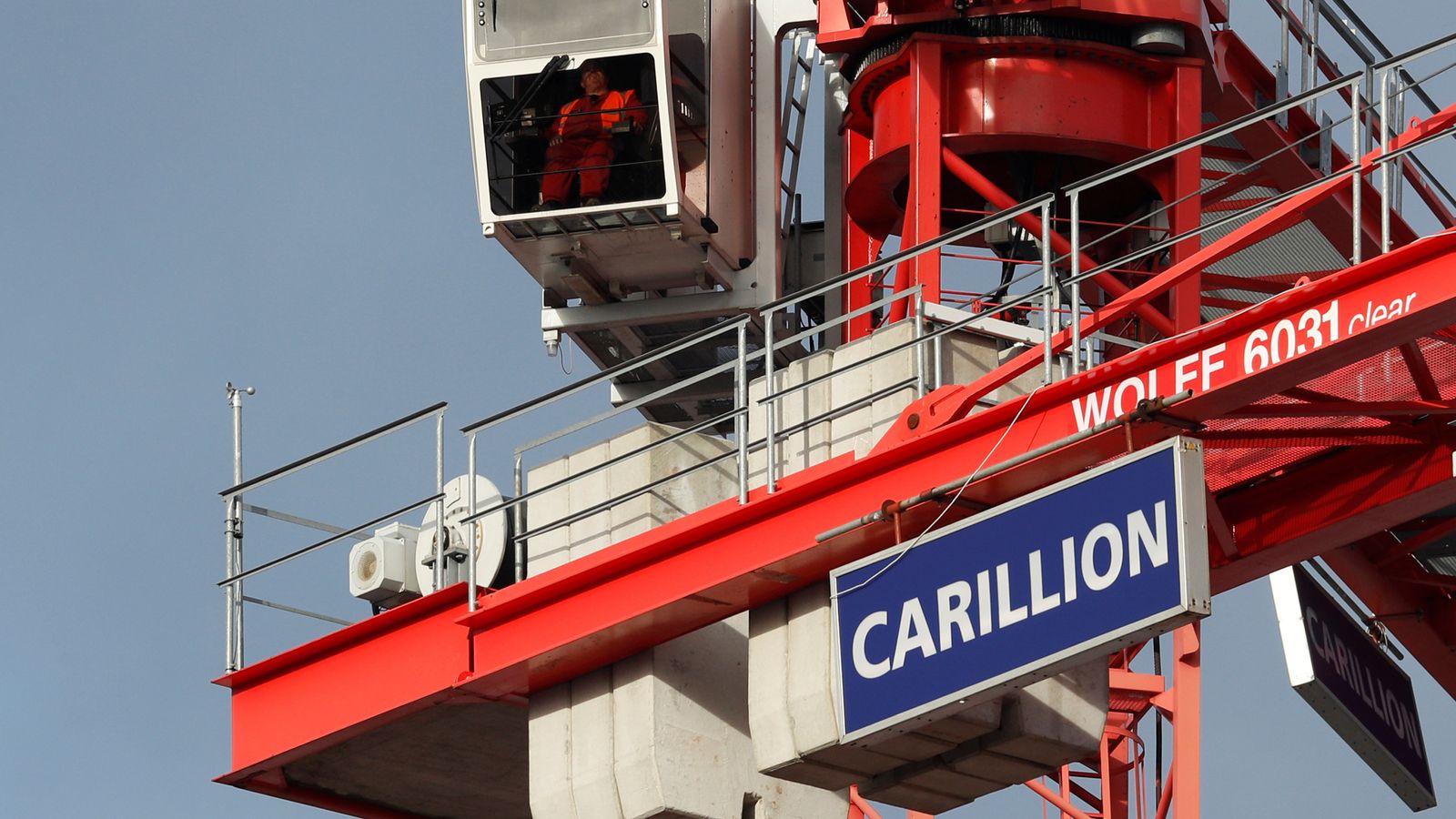The liquidators of Carillion, the construction giant whose collapse in 2018 became one of Britain’s biggest corporate scandals, have taken a big step towards a mammoth legal claim against KPMG, the former FTSE 100 company’s auditor.
Sky News has learnt that representatives of the Official Receiver sent a pre-claim letter to KPMG earlier this month as it pursues the accountancy firm for as much as £250m.
The letter before action – which was sent by PricewaterhouseCoopers in its role as special manager working on behalf of the Official Receiver – marks another key milestone in what will become one of the most closely-watched UK legal fights involving a major audit firm.
The development has emerged roughly a month after the Official Receiver struck a deal with Litigation Capital Management, a stock market-listed company, to fund the claim.
People close to the process said the action against KPMG was driven by the liquidators’ statutory duty to maximise recoveries for Carillion’s creditors.
The construction group, which was involved in building and maintaining hospitals and roads, and delivering millions of school meals, went bust in January 2018 owing close to £7bn.
Thousands of jobs were lost as a result of its collapse.
Earlier this year, Kwasi Kwarteng, the business secretary, authorised the Insolvency Service to pursue former Carillion board members including Philip Green, its chairman, with a view to having them disqualified from acting as company directors.
The legal action is expected to allege that KPMG failed in its duties as auditor to spot misstatements in the outsourcing group’s accounts.
It will claim damages of at least £250m on behalf of creditors – reflecting the sums Carillion paid out in dividends, advisory fees and losses incurred while it continued to trade.
One source said the eventual claim would argue that these dividends would never have been paid if the company’s accounts had been correctly audited and fairly stated.
KPMG’s work for Carillion is separately being investigated by the Financial Reporting Council (FRC), the accounting regulator.
Carillion’s demise became one of the principal catalysts for reform of the audit sector in Britain, with far-reaching consequences including the creation of a new watchdog, and a requirement for the big four firms – Deloitte and EY being the others – to ‘operationally separate’ their audit and consulting arms.
At the time of its collapse, Carillion held approximately 450 construction and service contracts across government.
It employed more than 43,000 people, including 18,000 in the UK.
In a scathing report on the company’s corporate governance, the Commons business, energy and industrial strategy select committee said: “As a large company and competitive bidder, Carillion was well-placed to win contracts.
“Its failings in subsequently managing them to generate profit was masked for a long time by a continuing stream of new work and… accounting practices that precluded an accurate assessment of the state of contracts.”
KPMG served as Carillion’s auditor for almost two decades, earning a total of £29m for its audit work.
Detailed particulars of the claim are expected to be served on KPMG later this year, unless a settlement is reached prior to that point.
KPMG declined to comment, although a source close to the firm said no formal claim had been lodged with the courts.
A spokesman for the Official Receiver declined to comment.






















